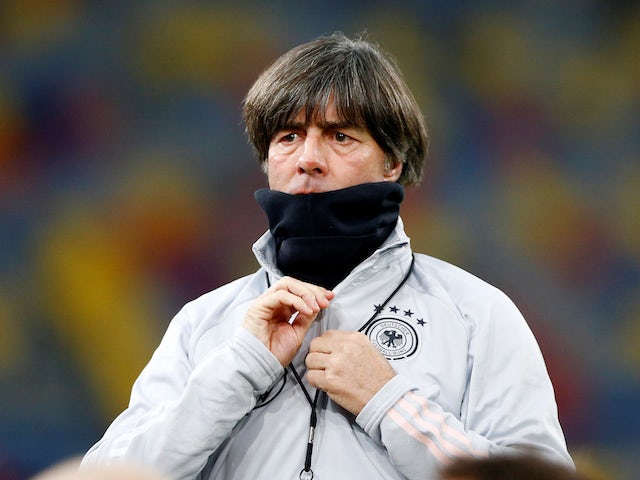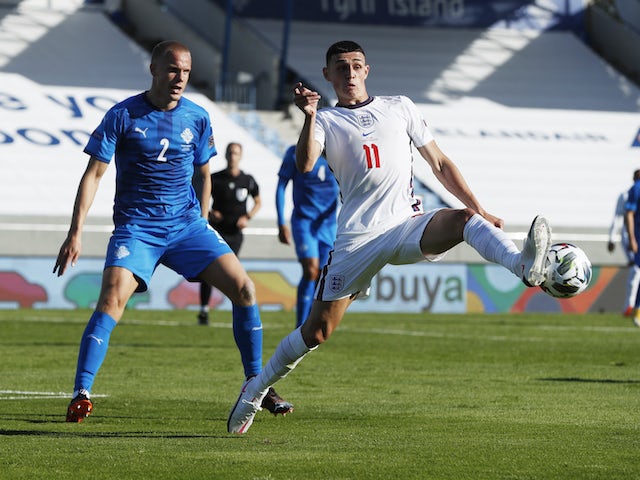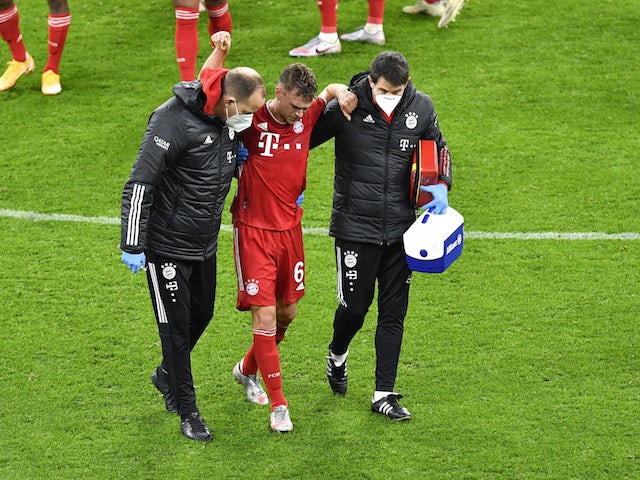Joachim Low begins his final World Cup Qualification campaign with Germany on Thursday when the four-time champions welcome Iceland to the MSV-Arena in Group J.
Both teams failed to progress past the group stage of the 2018 World Cup, and Die Mannschaft in particular will be desperate to improve on that finish under new leadership.
Match preview
 © Reuters
© Reuters
This summer's European Championships will mark Joachim Low's final tournament of his 15-year spell in charge of Germany, as the 61-year-old has announced that he will step down from the role after a distinguished career in the Mannschaft hotseat.
Low's first World Cup in 2010 saw Germany take the bronze medal before Mario Gotze wrote his name into the history books by scoring the winner against Argentina in the final four years later, although Russia 2018 was nothing short of a calamitous affair for the then-defending champions.
Indeed, Germany only won one of their three group stage matches and finished rock bottom as Sweden and Mexico progressed, and while Die Mannschaft have endured a spate of positive results since that doomed tournament, their most recent fixture arguably overshadowed their previously unbeaten record in 2020.
Low oversaw two victories and three draws from his side's first five Nations League encounters, but they simply capitulated against Spain as they fell to a crushing 6-0 defeat in League A Group 4 - a result which saw La Roja progress at the expense of their European counterparts - and that game also marked the first time in 89 years that Germany lost by a six-goal margin.
Despite that humiliation, Low's side can take solace from the fact that only one of their last 15 matches on home soil has ended in defeat, and they secured back-to-back victories over the Czech Republic and Ukraine on familiar territory last autumn, so this week's hosts must surely take the lessons they learned in their drubbing against Spain and use them for good here.

This week's visitors are also preparing for a new era under new leadership after Erik Hamren's departure, with former international Arnar Vidarsson gearing up for a baptism of fire in his first match in charge of Iceland.
Hamren's Iceland were never expected to successfully challenge Denmark, England or Belgium for their right to remain in League A of the Nations League, and six defeats from six saw the Nordic nation's relegation to League B confirmed after a crushing 4-0 defeat to the Three Lions in their final game in November.
Iceland's only victory of the autumn came in their Euro playoff semi-final against Romania, whom they defeated 2-1, but the brilliance of Dominik Szoboszlai ultimately saw Hungary progress to this summer's tournament a month later, so there will be no repeat of their historic 2016 run on the continental stage for Vidarsson's side this year.
However, the Nordic nation are now bidding to qualify for the World Cup for only the second time after making their inaugural appearance in Russia last year, but as expected, their journey ended at the first hurdle as they claimed just one point from their three group matches, although that was a memorable 1-1 draw with Argentina.
Thursday's game marks the fifth meeting between Germany and Iceland since their first battle in 1960 - which the hosts won 5-0 - and the most recent encounter between the two sides was all the way back in 2003, where Die Mannschaft won 3-0 during qualification for Euro 2004.
- D
- W
- D
- W
- W
- L
- W
- L
- L
- L
- L
- L
Team News
 © Reuters
© Reuters
Low is sweating over the fitness of Bayern Munich midfielder Joshua Kimmich, who has been included in the squad but missed out the weekend's win over Stuttgart with a bout of illness, although he is understood to be feeling much better and ready for action.
However, the 101-cap Toni Kroos has left the camp due to injury, so Kimmich, Ilkay Gundogan, Leon Goretzka should start in the midfield, and while there is a space in the squad for 18-year-old Jamal Musiala, a man 13 years his senior in Thomas Muller has been overlooked.
With Niklas Sule and Robin Gosens ruled out through injury, Lukas Klostermann and Marcel Halstenberg could deputise, while the effervescent front three of Serge Gnabry, Timo Werner and Leroy Sane should all retain their places.
Meanwhile, Iceland playmaker Gylfi Sigurdsson and his wife are expecting the birth of their first child, so the Everton man will not be taking part in March's fixtures.
Vidarsson may struggle to work around his absence with another experienced midfielder in Emil Hallfredsson out through injury, and Alfred Finnbogason's calf problem will prevent him from building on the 15 goals he already boasts for his country.
Germany possible starting lineup:
Neuer; Klostermann, Ginter, Rudiger, Halstenberg; Kimmich, Gundogan, Goretzka; Gnabry, Werner, Sane
Iceland possible starting lineup:
Halldorsson; Saevarsson, Ingason, Magnusson, Skulason; Gudmundsson, Gunarsson, Bjarnason, Traustason; Bodvarsson, Sigthorsson

We say: Germany 3-0 Iceland
While Low will not be in the hotseat to witness Germany at the next World Cup, the 61-year-old will not let a hint of complacency creep in as he bids to steer Die Mannschaft to another finals. It will be interesting to see how Iceland set up under their new manager, but Vidarsson could hardly have been handed a more challenging opening task, and this should be a routine win for Germany.
Top tip
Data Analysis
Our analysis of all available data, including recent performances and player stats up until an hour before kickoff, suggested the most likely outcome of this match was a Germany win with a probability of 68.41%. A draw had a probability of 23.4% and a win for Iceland had a probability of 8.2%.
The most likely scoreline for a Germany win was 1-0 with a probability of 22.13%. The next most likely scorelines for that outcome were 2-0 (17.8%) and 3-0 (9.55%). The likeliest drawn scoreline was 0-0 (13.75%), while for a Iceland win it was 0-1 (5.15%). The actual scoreline of 3-0 was predicted with a 9.6% likelihood. Our data analysis correctly predicted that Germany would win this match.











